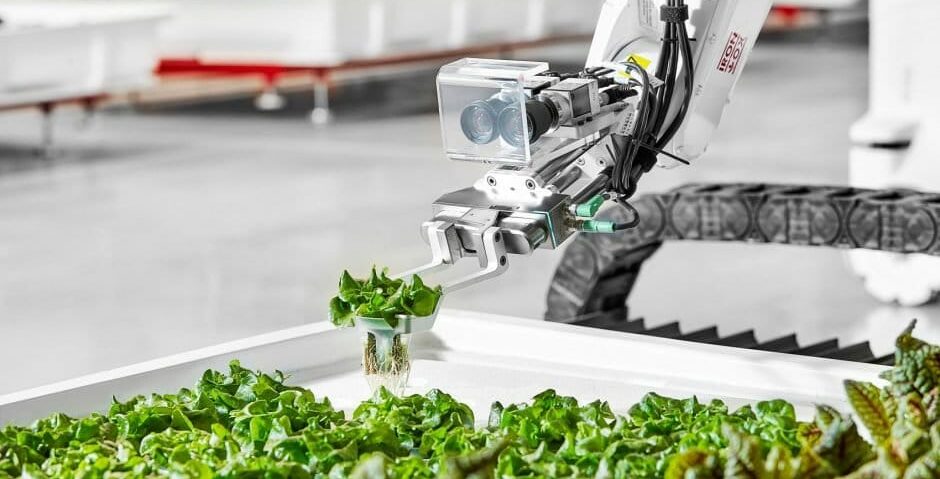One of the biggest issues facing commercial farmers nowadays, outdoor and indoor, is labour scarcity. The reality is newer generations are not taking up farming and this is true across the globe. Automation appears to be the logical solution to fill this ever-widening gap in the agricultural labour market. Robots are now being developed for picking tomatoes, leaf-pruning and other manual tasks.
And there now seems to be 2 distinct directions the teams of developers are going in. The first is a mono-task robot that would specialise in labour-intensive tasks such as picking, leaf-cutting and lowering. The second is a multi-task robot that would perform a wide array of different tasks in the greenhouse and also have the capacity to take measurements of crops, predict tomato harvests by scanning and analysing produce lines, and perhaps most importantly of all, especially for large-scale growing operations, raise the alarm if any sanitary issues are identified. Additionally, several different business models are envisaged. One option would be for the grower to buy the robot outright, another would be to enter into a leasing and maintenance agreement with the constructor.
Here in France, there’s a robotics company based in Brittany that is getting a lot of attention for the work they’re doing developing robots for modern hydroponic farming. AISPRID was created at the end of 2019 with the aim of coming up with a robotic solution to the worldwide problem of labour shortage in the agriculture sector. The 3 co-founders of AISPRID come from backgrounds in artificial intelligence (AI), robotics and software engineering / big data. At the beginning of their careers their knowledge and experience in these different, but complementary domains were applied in sectors far removed from agriculture. And yet, they each shared a desire to use their skills to create some positive and lasting change in the world.
Everyone is aware the world population is growing all the time, but a question that isn’t asked often enough is how we are going to feed this ever-growing population and what the major obstacles could be to achieve this objective. This was the starting point for the creation of AISPRID. They began by looking at the urban farm model and quickly identified one major drawback, the large amount of energy required to run this type of farm. They then reached out to producers in their local area to find out what the challenges were to small- and medium-sized growers involved in modern agriculture. Nearly all of the producers they spoke to said the biggest issue they were facing is labour scarcity and if a solution wasn’t found in the years to come a number of them could not see a future in farming.
The first robotic tests were carried out on strawberry plants. They then decided to focus their efforts on tomato harvesting and other related tasks, as it touches a much larger market and the greenhouse technology and infrastructure for tomato growing is more or less standardised wherever you go in the world. AISPRID already has several robots on test with local growers and the feedback from them has been very positive. Nicolas Salmon, the company’s director explained: “The idea is not to replace humans in the food growing process, but robots can definitely be complimentary and certain daytime tasks like leaf-cutting could be carried out during the night when traditionally greenhouses are closed and “inactive” from a production point of view.”
This is a young and highly motivated team, and even if they have some serious competition in the race to commercialise and launch an autonomous robot for the hydroponic growing sector, they are already making great progress, and one of the key advantages they have is they are 100% focused on the task at hand. Initially, they are focusing on the French market, but longer-term their vision is to scale up their robot leasing model and offer their AI expertise to growers around the world.
With 4.6 million euros of funding behind them and patents pending this is a company going places fast. Next year, they’re planning to have many more robots available for lease. AISPRID will offer a maintenance and distant monitoring package “for a price equivalent to that of a standard worker” and will collect data from the robots to continually develop and improve their functionality in the agricultural workplace.
And “the cherry on the cake”? All the robots will be assembled at their headquarters in St Malo, so they can add the “Made in France” label to the many other accolades they’ve won since the company’s inception.
